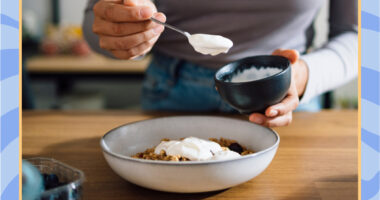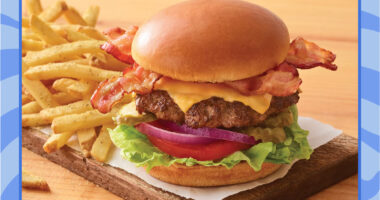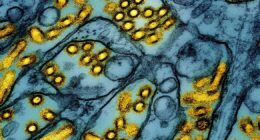A number of factors can contribute to hair loss, some of which are genetic and others are lifestyle-based. While we may not be able to do anything about our inherited traits, our daily lifestyle choices, including our eating habits and vitamin intake can all be modified in ways that can help reduce the potential risk of hair loss.
Historically, research has shown a correlation between diet, vitamin and mineral deficiencies, and hair loss, noting that when these entities are able to effectively drive standard cell development and functionality, the greater the opportunity there is to potentially treat hair loss. That said, there is still much to learn about the exact role diet may play in hair loss and thinning, and even the best diet may not be able to override genetics in all cases. However, bad eating habits run the risk of countering any efforts to improve thinning hairlines or restore luscious locks to their former glory.
There is value in following a well-rounded eating plan to support your hair health. To help you avoid the bad so you can focus on the good, here are five bad eating habits that may cause hair loss. And for more info on which specific foods to avoid when concerned about hair loss, be sure to also read The #1 Worst Food to Eat for Hair Loss, Says Dietitian.
Calorie restriction
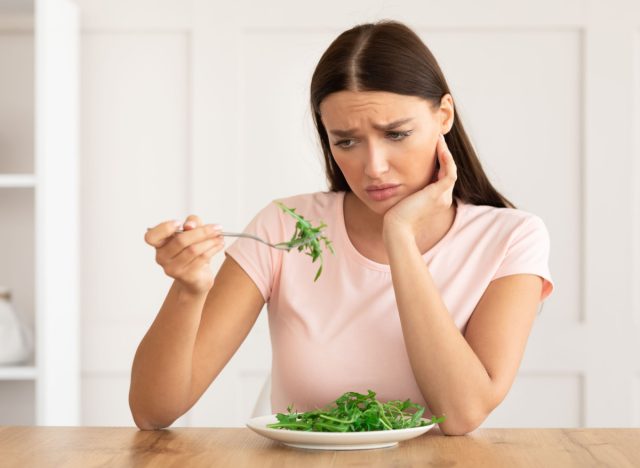

If you are significantly under consuming calories on a regular basis, hair loss may be one of the side effects. Calories fuel your body, from daily movement and exercise down to the energy needed to grow hair follicles. We all have a base number of calories we require in a day to meet our minimum needs. If your intake falls much below this, you could be jeopardizing a wide variety of bodily systems. In fact, crash dieting and other forms of restrictive eating have been documented to lead to such side effects as hair loss. While the relationship between energy consumption and hair loss may not be fully understood, the lack of nutrient intake associate with a low-calorie diet may be to blame.
READ RELATED: Cheers to that: IPAs and hoppy beers may LOWER the risk of Alzheimer's, study suggests
Inadequate dietary protein
When calorie consumption is too low to support basic functions and energy needs, it is likely that protein intake is also too low. Protein can aid in the repair, growth, and maintenance of bodily tissues—including hair. This macronutrient also plays a role in fluid and pH balance in the body. Keratin is the main form of protein that provides structure to hair, and the protein you consume through your diet is used to produce this keratin. When dietary protein intake is too low to support hair growth, it is possible that hair quality is reduced, and hair loss is more likely to occur.
Zinc deficiency
Zinc is a mineral that aids more than 100 enzymes in carrying out their functions. It has a role in immune system support, the making of DNA, repairing tissues, and building proteins. With such functions, a zinc deficiency may show itself in numerous ways in the body. Alopecia, or hair loss, is a known side effect of zinc deficiency, likely due to zincs role in building proteins. Luckily, in some studies, zinc supplementation following hair loss from a deficiency appears to aid in the regrowth of hair.
Iron deficiency
Another mineral with many functions in the body is iron. The role is it most commonly known for is aiding in blood health and assisting red blood cells (RBC) in carrying oxygen throughout the body. When an iron deficiency becomes significant enough, it may impact the ability of RBC’s to properly carry oxygen, and tissues, including hair, may be impaired. One 2013 study looked at the relationship between iron deficiency and hair loss, and the results suggested iron may play a more significant role in female pattern hair loss than male pattern hair loss. While the men in this study also experience hair loss, fewer than 23% of them also had low iron levels. This study notes a blood iron screening may be helpful for individuals experiencing hair loss.
Over-supplementation
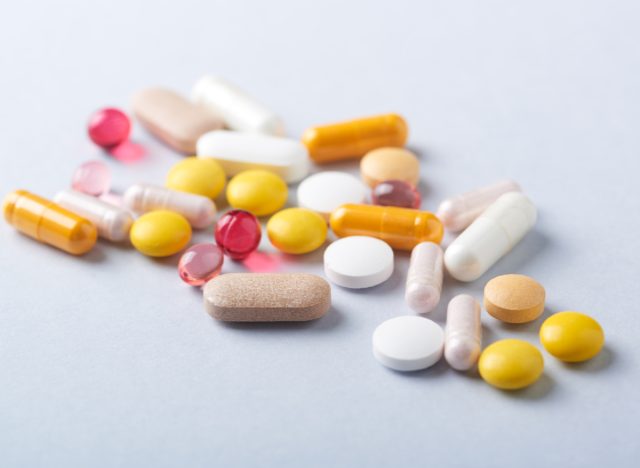

While insufficient calories and dietary nutrient intake can lead to hair loss, over-supplementation could cause hair loss, too. Consuming too much selenium, vitamin A, and vitamin E have been linked to hair loss, as well as other toxicity-related complications. One study that notes this side effect resulting from over-supplementation also points out that excessive intake of nutritional supplements is not recommended in the absence of deficiency. With this information, it is best to speak with your physician and have blood work evaluated before beginning supplements with the hopes of reducing hair loss.
Source:



